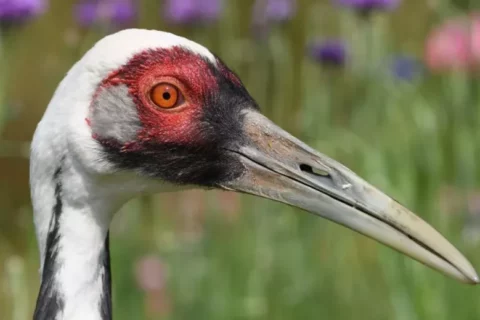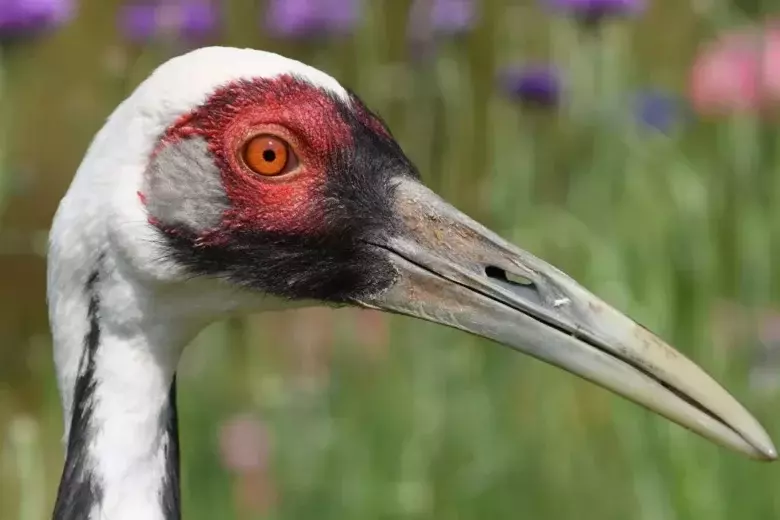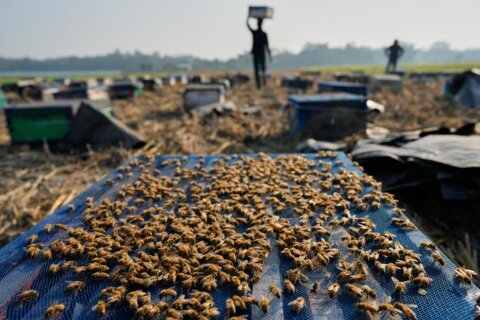
An aging crane has died at the Smithsonian’s animal conservation site, but not before establishing a special bond with her keeper and doing her part to help perpetuate her threatened species.
The Smithsonian Institution announced Wednesday that a white-naped crane, native to Mongolia, Siberia, Korea, Japan and China, died Jan. 2 at the Smithsonian’s National Zoo and Conservation Biology Institute campus in Front Royal, Virginia.
The crane, named Walnut, lived to the astonishing age of 42. Most white-naped cranes in captivity live to about 15. But Walnut had a lot to live for — the pleasing and pastoral life of the conservation center in the shadow of the Blue Ridge Mountains and apparently, a guy she loved — her keeper Chris Crowe.
Because Walnut was hand-raised by people, she bonded with humans, not cranes. Not only did she resist the entreaties of male white-naped cranes, she attacked them.
Enter Chris Crowe.
During breeding season it fell upon the keeper to interact with the elegant bird. So, he repeatedly flapped his arms and danced on his feet, a little like male cranes flap their wings and dance about to impress female cranes.
It worked. Walnut fell for Crowe.
“Walnut was a unique individual with a vivacious personality,” Crowe said. “She was always confident in expressing herself, an eager and excellent dancer, and stoic in the face of life’s challenges.”
Over 15 years, the keeper used sperm from white-naped male cranes to artificially inseminate the bird, who had eight offspring to help perpetuate her species.
There are believed to be fewer than 5,300 white-naped cranes living in the wild.
“I’ll always be grateful for her bond with me,” Crowe reflected. “Walnut’s extraordinary story has helped bring attention to her vulnerable species’ plight. I hope that everyone who was touched by her story understands that her species’ survival depends on our ability and desire to protect wetland habitats.”
Get breaking news and daily headlines delivered to your email inbox by signing up here.
© 2024 WTOP. All Rights Reserved. This website is not intended for users located within the European Economic Area.









